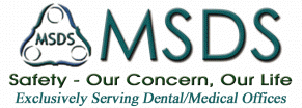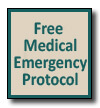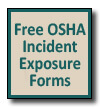From Your Regulatory Compliance Specialist – Linda Cannon. COVID-19 Update#22
 |
| Staff of MSDS wish you to Stay Safe, De-Stress and Stay Active! Linda, Anee, Saba, Nicky, Ifra and Gaetan (no photo)      |
| Quick Guide to Newsletter’s Content: – Medicago’s tobacco ties jeopardize growth of its COVID shot – WHO may reject world’s first plant-based COVID-19 vaccine over drugmaker’s tobacco links – U.S. limits use of J&J’s COVID vaccine on blood clot risks – Supreme Court blocks COVID-19 vaccine-or-test requirement for large workplaces – DR. DAVID E MARTIN GIVES EXPLOSIVE JAW DROPPING INFORMATION IN CANADIAN ZOOM MEETING‘ – Paramount importance’: Judge orders FDA to hasten release of Pfizer vaccine documents – Dental Healthcare Providers are to use PPE no different then if they worked at a hospital |
Medicago’s tobacco ties jeopardize growth of its COVID shot
By Amruta Khandekar and Mrinalika Roy

The leaves of a Nicotiana benthamiana plant is pictured at Medicago greenhouse in Quebec City, August 13, 2014.
Canadian vaccine maker Medicago’s COVID-19 vaccine, approved last month in Canada, is facing limited growth in the near-term after the World Health Organization said it would not review the vaccine because the company is partly owned by U.S.-Swiss tobacco company Philip Morris, health experts say.
The WHO said at a briefing this month and in a follow-up statement to Reuters that it has not accepted an application for the vaccine because of its 2005 public health treaty requiring no involvement with any company that produces or promotes tobacco-based products.
Canada, which has provided millions of dollars in development funding to the company and has agreed to buy up to 76 million doses, defended its authorization of the vaccine, saying it needs a domestic bio-manufacturing industry to prepare for future pandemics.
Health Canada said it believes it is in compliance with the WHO tobacco treaty.
The WHO tobacco treaty “does not preclude the Government of Canada from working with Medicago on vaccine development and procurement to ensure that a ready and effective supply of vaccines is available for its population,” a Health Canada spokesperson told Reuters.
Experts say a WHO authorization is key because the vaccine can then be part of the COVAX global vaccine program for low- and middle-income countries. While much of the developed world has already been vaccinated, Africa is still in desperate need of vaccines. WHO’s approval can also stand in for countries that do not have their own drug regulatory agencies.
The company has also pitched the platform as easily adaptable for new vaccines should there be a next pandemic. It is developing flu vaccines on the platform as well.
“I think that the WHO standards are going to pose a barrier to the uptake of the vaccine,” said Amesh Adalja, an infectious disease expert at the Johns Hopkins Center for Health Security.
Medicago would now need to approach European and U.S. regulators as well as any other individual countries one by one to attain approvals, a more difficult but not impossible barrier to use, Adalja said.
Medicago said it is in discussions with other potential customers worldwide.
The company has started the filing process for approval of its COVID-19 vaccine with the U.S. Food and Drug Administration (FDA), Medicago Chief Executive Officer Takashi Nagao said in an emailed statement.
The company has also started an early-to-mid stage study of the shot in Japan, and plans to file for regulatory approval in the spring, Nagao said.
It said it has not received an official communication from the WHO, but believed the decision was linked to its minority shareholder and not the safety and efficacy profile of its COVID-19 vaccine.
Swiss-American tobacco giant Philip Morris (PM.N) owns a 21% stake in the Quebec company. Japan’s Mitsubishi Tanabe Pharma, a unit of Mitsubishi Chemical Holding Corp (4188.T), owns the rest of Medicago.
Canadian health group Quebec Coalition for Tobacco Control this week called on Canada to demand that Medicago replace Philip Morris as a stakeholder due to its tobacco business. Philip Morris has had a stake in the company since 2008.
A Philip Morris spokesperson said that the WHO’s position was in opposition to its own call to accelerate vaccinations around the world.
“Emergency use authorization of a COVID-19 vaccine has absolutely nothing to do with tobacco control,” the spokesperson said. “WHO policies should focus on accelerating medical progress and innovation.”
Medicago’s Covifenz is the only authorized COVID-19 vaccine that is plant-based. To make the vaccine, the company uses nicotiana benthamiana, a cousin of the tobacco plant, as small bioreactors, growing non-infectious virus like particles that mimic the coronavirus. It is given with a boosting compound from British drugmaker Glaxosmithkline (GSK.L).
The United States and Europe, which already have several vaccines cleared for use, may still want Medicago’s shot because of its plant-based technology, which would be useful to create a vaccine against the next problematic pathogen, according to Prashant Yadav, lecturer and supply chain expert at Harvard Medical School.
https://www.reuters.com/business/healthcare-pharmaceuticals/medicagos-tobacco-ties-jeopardize-growth-its-covid-shot-2022-03-27/
HEALTHCOVID-19 VACCINES
WHO may reject world’s first plant-based COVID-19 vaccine over drugmaker’s tobacco links
BY CORINNE GRETLER AND BLOOMBERG

Medicago Inc.’s COVID-19 vaccine is poised to become the first western shot to be rejected by the World Health Organization, because of the company’s links to cigarette maker Philip Morris International Inc.
The Canadian biopharma company’s request for pre-qualification of its Covifenz shot wasn’t accepted, according to the WHO’s guidance document dated March 2. That means the WHO is unlikely to approve the vaccine for emergency use, which would also keep it out of the Covax global vaccine-sharing facility.
“Due to its connections—it’s partially owned by Philip Morris—the process is put on hold,” Mariangela Simao, WHO’s assistant director-general for drug access, vaccines and pharmaceuticals, said at a media briefing on Wednesday. “The WHO and the UN have a very strict policy regarding engagement with the tobacco and arms industry, so it’s very likely it won’t be accepted for emergency use listing.”
Covifenz is the world’s first plant-based COVID inoculation. It’s made from proteins, grown in plants, that look like the virus that causes COVID to the human immune system. The vaccine also uses GlaxoSmithKline Plc’s pandemic adjuvant, a substance that boosts the immune system’s response. It was jointly developed by Medicago, which is owned by Mitsubishi Chemical and Philip Morris, and Glaxo. The Canadian government provided $173 million in funding to its development and is so far the only country that has cleared it for use.
Anti-tobacco groups argue that financing and approving a drug that has links to the tobacco industry violates the WHO Framework Convention on Tobacco Control that came into force in 2005. The global treaty calls for tighter tobacco controls and emphasizes the need for public health policies to be protected from commercial and other vested interests of the tobacco industry.
Canada has studied the government’s investment in Medicago carefully and considers that it is compliant with its treaty obligations, a spokeswoman for Health Canada wrote in an emailed response to questions. She said the treaty doesn’t preclude the government from working with Medicago on vaccine development and procurement to ensure that a ready and effective supply of vaccines is available for its population.
“The Department’s interactions with the tobacco industry will continue to be transparent in accordance with Health Canada’s openness and transparency requirements and in alignment with guidelines under the WHO FCTC,” she wrote.
Medicago Chief Executive Officer Takashi Nagao said late Wednesday that the company hadn’t yet received any official communication from the WHO.
“It is our understanding that this decision is linked to Medicago’s minority shareholder and not the demonstrated safety and efficacy profile of our COVID-19 vaccine,” he said.
Medicago has a contract with the Canadian government to supply up to 76 million doses of the vaccine and is in talks with other countries about potential agreements, Nagao has said.
“Even if it’s not a violation of the letter, it’s definitely a violation of the spirit of the convention,” said Les Hagen, executive director at Action on Smoking and Health in Edmonton, a public health charity. “This is not Canada’s proudest moment in public health.”
The situation highlights the difficulties Big Tobacco faces as companies increasingly seek to expand further into the health and wellness sector. Philip Morris, which sells Marlboro cigarettes outside the U.S., has made a series of acquisitions that included inhaled-therapy maker Vectura Group Plc, a move that caused public outcry. British American Tobacco Plc has set up a new biotech arm, KBio Holdings, that will focus on developing treatments and vaccines for rare and infectious diseases using plant-based technology.
China’s IMBCAMS’s request for pre-qualification of its inactivated COVID vaccine was also not accepted, with the WHO noting that shot was still under initial development.
Medicago has been in contact with the European Medicines Agency, which would be ready to study an application if it makes one, Marco Cavaleri, the EU regulator’s head of biological health threats and vaccines strategy, said at a weekly briefing on Thursday.
Michael R. Bloomberg, founder and majority owner of Bloomberg News parent Bloomberg LP, has been a longtime champion of tobacco-control efforts.
—With assistance from Brian Platt.
https://fortune.com/2022/03/17/who-rejects-worlds-first-plant-based-covid-vaccine-medicago-phillip-morris/
U.S. limits use of J&J’s COVID vaccine on blood clot risks

A vial of the Johnson & Johnson’s coronavirus disease (COVID-19) vaccine is seen at Northwell Health’s South Shore University Hospital in Bay Shore, New York, U.S., March 3, 2021.
The U.S. health regulator said on Thursday it was limiting the use of Johnson & Johnson’s (JNJ.N) COVID-19 vaccine for adults due to the risk of a rare blood clotting syndrome, the latest setback to the shot that has been eclipsed by rivals.
The J&J shot, which received U.S. clearance in February 2021 for adults, can be administered in cases where authorized or approved COVID-19 vaccines are not accessible or if an individual is less keen on using the other two shots, the Food and Drug Administration said.
J&J is one of the three vaccines in use in the United States. The other two are from Moderna (MRNA.O) and Pfizer (PFE.N).
The vaccine maker said it has updated the U.S. COVID-19 vaccine fact sheet to warn about the risk of thrombosis with thrombocytopenia syndrome (TTS), a rare but potentially life-threatening condition.
Use of the J&J shot has been weak in high-income countries, hurt by reports of rare, potentially deadly blood clots, production issues, including an accidental mix-up of ingredients by a contract manufacturer, and concerns about efficacy.
The drugmaker last month rescinded its forecast for COVID-19 vaccine sales, citing a glut of supply.
Cases of TTS, which involves blood clots accompanied by a low level of platelets, have previously been reported in recipients of the J&J vaccine.
The FDA in January amended the fact sheet for the J&J vaccine to include the risk of immune thrombocytopenia, months after the European Union’s drugs regulator took similar action.
The FDA on Thursday said the risk of TTS warranted limiting the use of the single-dose shot after it conducted investigation of reported cases.
The U.S. Centers for Disease Control and Prevention in December had recommended that Americans choose to receive mRNA shots from Pfizer and Moderna over J&J’s vaccine due to the rare cases of blood clotting.
Around 18.7 million Americans have received a J&J COVID-19 shot compared with 217.5 million people who received the Moderna vaccine and 340.6 million people who received Pfizer’s shot, according to CDC.
https://www.reuters.com/business/healthcare-pharmaceuticals/us-limits-use-jjs-covid-19-vaccine-adults-blood-clot-risks-2022-05-05/
VDA HUB -Vaccines
Supreme Court blocks COVID-19 vaccine-or-test requirement for large workplaces
Court upholds vaccine mandate for workers at federally funded health care facilities
The U.S. Supreme Court ruled Jan. 13 to block a federal mandate that called for large employers to require their employees to be fully vaccinated against COVID-19 or wear face coverings and be tested weekly.
https://www.ada.org/publications/ada-news/2022/january/supreme-court-blocks-covid-19-vaccine-or-test-requirement-for-large-workplaces
DR. DAVID E MARTIN GIVES EXPLOSIVE JAW DROPPING INFORMATION IN CANADIAN ZOOM MEETING
https://rumble.com/v153ybt-dr.-david-e-martin-gives-explosive-jaw-dropping-information-in-canadian-zoo.html?fbclid=IwAR1-kfQigoJ_GekxS_1dm9Pp69fa5wRBGruUUg_3KRCjlY4udg0OxFH4Cs8
‘Paramount importance’: Judge orders FDA to hasten release of Pfizer vaccine documents

A federal judge in Texas on Thursday ordered the Food and Drug Administration to make public the data it relied on to license Pfizer’s COVID-19 vaccine, imposing a dramatically accelerated schedule that should result in the release of all information within about eight months.
That’s roughly 75 years and four months faster than the FDA said it could take to complete a Freedom of Information Act request by a group of doctors and scientists seeking an estimated 450,000 pages of material about the vaccine.
The court “concludes that this FOIA request is of paramount public importance,” wrote U.S. District Judge Mark Pittman in Fort Worth, who was appointed to the bench by former President Donald Trump in 2019.
The FDA didn’t dispute it had an obligation to make the information public but argued that its short-staffed FOIA office only had the bandwidth to review and release 500 pages a month.
While Pittman recognized “the ‘unduly burdensome’ challenges that this FOIA request may present to the FDA,” in his four-page order, he resoundingly rejected the agency’s suggested schedule.
Rather than producing 500 pages a month — the FDA’s proposed timeline — he ordered the agency to turn over 55,000 a month. That means all the Pfizer vaccine data should be public by the end of the summer rather than, say, the year 2097.
Even if the FDA may not see it this way, I think Pittman did the agency — and the country — a big favor by expediting the document production.
I’ve been chronicling this fight since November and have heard from of readers who said they felt something was suspicious, even nefarious, in the FDA’s proposed slo-mo timeline. Making the information public as soon as possible may help assuage the concerns of vaccine skeptics and convince them the product is safe.
Pittman in his order nodded to this as well, including a quote from the late senator John McCain, who said that excessive administrative secrecy “feeds conspiracy theories and reduces the public’s confidence in the government.”
Still, the FDA is likely to be hard-pressed to process 55,000 pages a month.
The office that reviews FOIA requests has just 10 employees, according to a declaration filed with the court by Suzann Burk, who heads the FDA’s Division of Disclosure and Oversight Management. Burk said it takes eight minutes a page for a worker “to perform a careful line-by-line, word-by-word review of all responsive records before producing them in response to a FOIA request.”
At that rate, the 10 employees would have to work non-stop 24 hours a day, seven days a week to produce the 55,000 pages a month (and would still fall a bit short).
But as lawyers for the plaintiffs Public Health and Medical Professionals for Transparency pointed out in court papers, the FDA as of 2020 had 18,062 employees. Surely some can be dispatched to pitch in at the FOIA office.
Aaron Siri of Siri & Glimstad, who represents the plaintiffs, in an email said the decision “came down on the side of transparency and accountability.”
His clients — a group that includes more than 200 doctors, scientists, professors and public health professionals, including some who have publicly questioned the efficacy of lockdown policies, mask mandates and the vaccine itself — have pledged to publish all the information they receive from the FDA on their website.
The Justice Department, which represented the FDA in the litigation, did not immediately respond to a request for comment on Thursday evening. Pfizer, not a party to the suit, also did not immediately respond to a request for comment.
Pittman in his order made clear that the FOIA request, even if burdensome, has to be a priority for the FDA.
Quoting from remarks made during the hearing before him on December 14, he wrote that “there may not be a ‘more important issue at the Food and Drug Administration . . . than the pandemic, the Pfizer vaccine, getting every American vaccinated,” and assuring the public that the vaccine was not “‘rush[ed] on behalf of the United States.'”
https://www.reuters.com/legal/government/paramount-importance-judge-orders-fda-hasten-release-pfizer-vaccine-docs-2022-01-07/
Dental Healthcare Providers are to use PPE no different then if they worked at a hospital
Due to concerns about increased transmissibility of the SARS-CoV-2 Omicron variant, this guidance is being updated to enhance protection for dental healthcare personnel, patients, and visitors and to address concerns about potential impacts on the healthcare system given a surge in SARS-CoV-2 infections. These updates will be refined as additional information becomes available to inform recommended actions.
Empiric use of Transmission-Based Precautions (quarantine) is recommended for patients who have had close contact with someone with SARS-CoV-2 infection if they are not up to date with all recommended COVID-19 vaccine doses.
In general, quarantine is not needed for asymptomatic patients who are up to date with all recommended COVID-19 vaccine doses or who have recovered from SARS-CoV-2 infection in the prior 90 days; potential exceptions are described in the guidance. However, some of these patients should still be tested as described in the testing section of the guidance.
A test-based strategy and (if available) consultation with infectious disease experts is now recommended for determining the duration of Transmission-Based Precautions for patients with SARS-CoV-2 infection who are moderately to severely immunocompromised.
Included additional examples when universal respirator use could be considered
Additional updates that will have implications for dental healthcare facilities were made in the following guidance documents:
Interim Guidance for Managing Healthcare Personnel with SARS-CoV-2 Infection or Exposure to SARS-CoV-2
Strategies to Mitigate Healthcare Personnel Staffing Shortages
Interim Infection Prevention and Control Recommendations to Prevent SARS-CoV-2 Spread in Nursing Homes
https://www.cdc.gov/coronavirus/2019-ncov/hcp/infection-control-recommendations.html?fbclid=IwAR1SC0ACOzNwGEBoImfBhy4AMB-GXRrciEEnS2c7YhqnVjPZmoiPxrtccbs
| SALE Get each of the 3 models 3m 8200 and 3m 8210 and 3m 9205+ for $2 each. Here is the Link: https://www.msdssafety.com/product/n95-respirator-mask-on-sale-$2-pc |
| Want to change how you receive these emails? You can update your preferences or unsubscribe from this list. |



